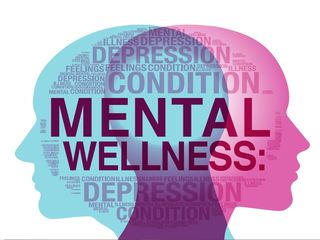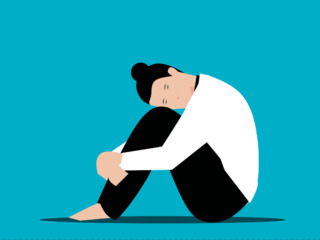
More workers are becoming caregivers thanks to the mental health crisis
61% said helping their loved ones with their mental health has impacted their work productivity
 Every age group, racial and ethnic group, and every gender had their mental health impacted negatively by the pandemic, though some worse than others, most especially young people and seniors. More than a third of high school students in 2021 reported they experienced poor mental health during the COVID-19 pandemic, and 44% reported they persistently felt sad or hopeless. Seniors, meanwhile, saw a 13% suicide rate increase in 2018 to 2020, and a 9% increase in depression between 2011 and 2020.
Every age group, racial and ethnic group, and every gender had their mental health impacted negatively by the pandemic, though some worse than others, most especially young people and seniors. More than a third of high school students in 2021 reported they experienced poor mental health during the COVID-19 pandemic, and 44% reported they persistently felt sad or hopeless. Seniors, meanwhile, saw a 13% suicide rate increase in 2018 to 2020, and a 9% increase in depression between 2011 and 2020.
These also happen to be two groups that are unable to care for themselves, meaning the responsibility often falls to their parent or adult child; in many cases the caregiver is both at once. So, it isn't surprising to learn that the increase in mental health problems has also led to an increase in caregiving among those who are of working age, as well as higher levels of burnout.
Research from the New York Life Group Benefit Solutions found that of the 1,000 surveyed workers, 48% have had to help a loved one live with a mental health challenge in the last year; of these workers, 45% said the mental health issue was worse this year than a year ago.
These workers who are being forced to take up these caregiving responsibilities are who you'd expect: they're mostly female Millenials and Gen Xers, aka those who are currently raising their own children, with their own aging parents.
Of those who said they were caregivers, 53% were female, while 26% were Millennials and 27% were Gen Xers. As such, 67% of female Millennials reported having anxiety, compared to 56% of Millennial males, while 54% of female Gen Xers reported feeling sad, while only 45% of male Gen Xers said the same. In all 80%, said that helping loved ones has impacted their own mental health and 65% reported needing more assistance addressing their own mental health.
All of this is causing problems with their job performance, with 61% saying that helping their loved ones cope with mental health challenges has impacted their work productivity, while 62% feel stress, 48% said they feel exhausted or distracted, and 47% report feeling overwhelmed at work.
Yet, most caregivers don't feel comfortable even telling their employers what's happening: 47% avoid taking time off and 63% haven't even informed their company about their need to support their loved ones' mental health. Even though 54% are familiar with the mental health resources offered by their employer, 48% haven't used them.
Interestingly, male Millennials were both more aware of their company's mental health resources compared to their female counterparts, 60% to 51%, and 41% said nothing would stop them from using these resources, compared to only 34% of female Millennials.
Nearly two-thirds of caregivers said they wished their employer would offer more mental health benefits.
"The increasing rate of mental illness is a growing concern, impacting both individuals navigating these challenges and the loved ones who are supporting them," said Meghan Shea, Vice President and Head of Strategy and Solutions at New York Life Group Benefit Solutions.
“While many employers have increased benefit offerings designed to address eldercare and childcare needs, caregiving associated with mental health is an area of opportunity – and our research shows employees are turning to their workplaces for this kind of support.”
(Image source: stackpathcdn.com)
Related News


